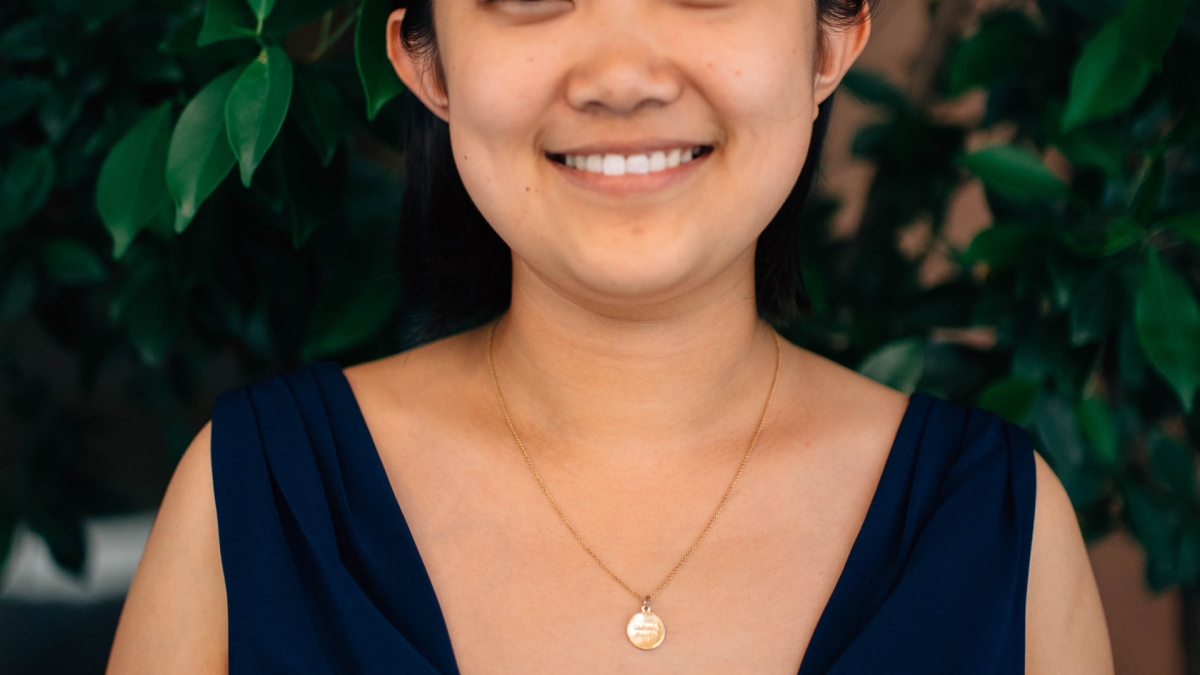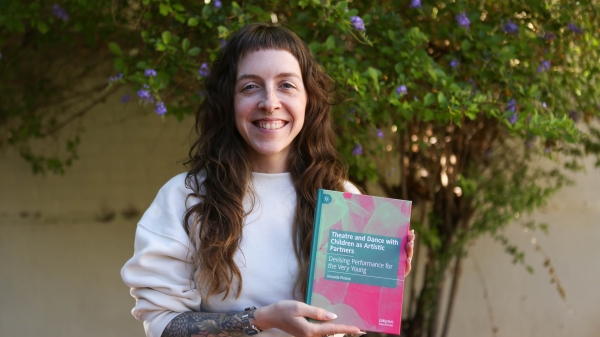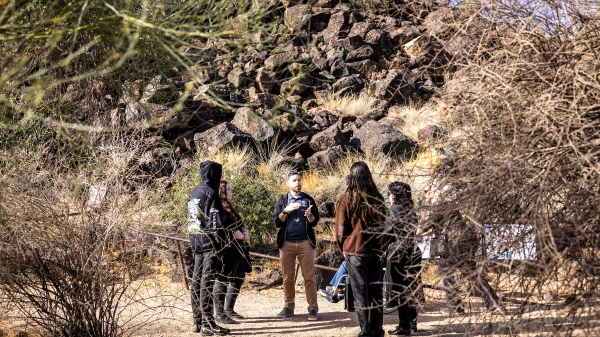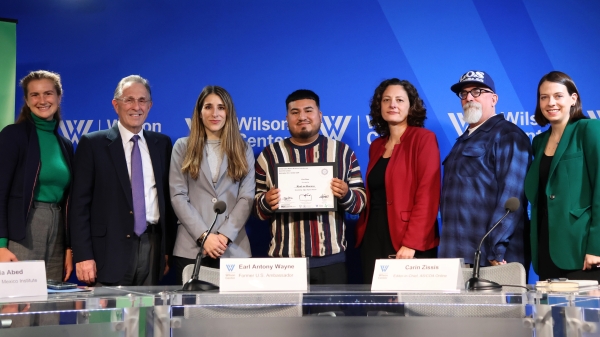Music therapy graduate was 'born to help people in need'

Ruihao Zhang.
Editor’s note: This is part of a series of profiles for fall 2018 commencement. Read about more graduates.
After earning a degree in chemical engineering and publishing three books and other works in China, Ruihao Zhang said she felt a calling to help people through music therapy. Zhang pursued a Bachelor of Music degree in music therapy and is graduating from Arizona State University in December 2018 after completing coursework for the four-year program in three years with a 4.0 GPA. She is currently a music therapy intern at Higher Octave Healing, Inc.
In 2017-18, Zhang served as president of the Music Therapy Student Organization and collaborated with her peers to host a weekly lecture series that invited music therapy clinicians from the community to speak about their clinical work. Zhang also organized several music-therapy based community service projects throughout the year and led the Music Therapy Student Organization in applying for and winning the Western Region American Music Therapy Association of Students Community Service Grant in March 2018. This grant will be used to implement a music therapy intergenerational project.
Zhang said that with support from faculty members, staff and peers from the ASU School of Music, she gained the courage to speak up for herself and for people who are in need and found encouragement for her willingness to change the community and the world in a positive direction.
Question: What was your “aha” moment, when you realized you wanted to study the field you majored in?
Answer: I had never thought music could be my career. I studied hard and followed my family’s suggestions and became an engineering student. I didn’t enjoy it that much during my studies, but I enjoyed all the music and art-related events that I participated in. Then I had a thought in my freshman year: Maybe I could do this (music) for all my life. I talked to different professors, friends and family, and none of them supported me to switch to music. I became a junior and was applying for a master’s degree in chemical engineering when one of the lecturers said, “Your ideal job should be a combination of interests, talents and money.” I couldn’t stop crying and told my mother that I had to go for music. She allowed me, but requested me to finish my degree then switch. I researched music-related majors and discovered music therapy, thinking, “Wow, I was born for this.”
Q: What’s something you learned while at ASU — in the classroom or otherwise — that surprised you or changed your perspective?
A: Life can be lived this way! Ooh, that way, too! Wow! There are so many things in this world unknown for us to explore and see.
Q: Why did you choose ASU?
A: ASU offers one of the best music therapy programs in the United States. The ASU application system was very user-friendly. Professor David Britton, who later became my voice instructor, had a music admissions person call me while I was choosing between schools, and that made me feel I was paid attention to. I love the heat and the cultural element of the city.
Q: Which professor taught you the most important lesson while at ASU?
A: I learned so many important lessons both for music therapy and personal life from different professors. I am sorry that I can’t pick one specific faculty member among David Britton, Robin Rio, Melita Belgrave, Julie Hoffer, Kymla Eubanks, Bliss Little, Jason Thompson and Lynette Myles.
Q: What’s the best piece of advice you’d give to those still in school?
A: You have all the goodness in you.
Q: What was your favorite spot on campus, whether for studying, meeting friends or just thinking about life?
A: Music library. I study, meet friends and think about life there.
Q: What are your plans after graduation?
A: I’d like to be a board-certified music therapist soon, probably pursue a master’s degree in neuroscience to contribute to music therapy from this specific view.
Q: If someone gave you $40 million to solve one problem on our planet, what would you tackle?
A: Imbalanced development between each continent, especially while people are wasting whatever they have while there are other people struggling for clean water and food.
More Arts, humanities and education

ASU professor explores theater, dance for young children in new book
Arizona State University Assistant Professor Amanda Pintore believes in the artistic capacity of very young children. She's…

Petroglyph preserve celebrates 30th anniversary with ancient, modern tales
The Deer Valley Petroglyph Preserve provides a beautiful walk through a pristine desert where chuckwalla lizards are as plentiful…

Kaleidoscope short film contest inspires powerful binational filmmaking in its second year
“We come to this country not to steal anybody’s jobs but to take advantage of the opportunities that the rest ignore. We’ve been…